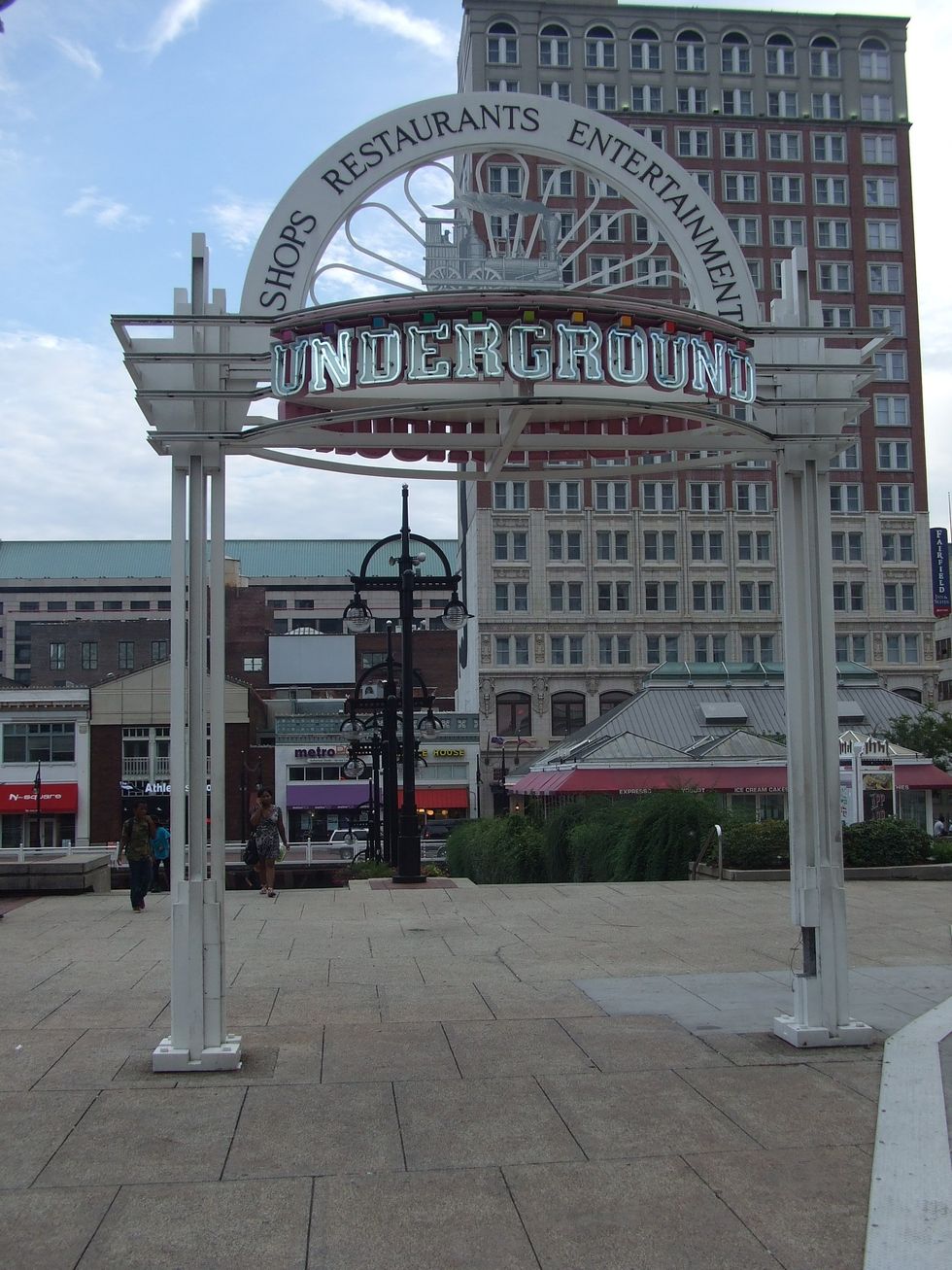Underground Atlanta used to be a hub of tourism in Atlanta. In 1972 Underground Atlanta saw over 3.5 million visitors and amassed over $17 million in sales. The site has then seen a precipitous drop in activity, even folding entirely in the 1980s. Mayor Andrew Young briefly revived the site in the 1980s but it then quickly declined again. As of 2017 the Underground Atlanta has been acquired from the city and is going to be the site of an apartment complex along with a number of commercial ventures. For all intents and purposes Underground Atlanta will be no more. What caused the once crown jewel of Atlanta to come to this?
Underground Atlanta was founded in 1969. Utilizing the old viaducts that lay beneath the streets of downtown Atlanta, Underground Atlanta opened a number of restaurants, bars, nightclubs, and music venues in the old storefronts. The original architecture from the 1920s gave the site an authentic feel and the site was one of the few that offered alcohol in the area (due to the sale of alcohol being highly regulated). These factors combined to make the site a popular attraction to tourists and Atlanta area residents alike.
The downfall of Underground began in the mid 70s as DeKalb County loosened its regulations on the sale of alcohol. Because of this Underground Atlanta had an increased level of competition in the Atlanta area, it was no longer exclusive in its ability to serve and sell alcohol. In addition to this, major construction began in Underground Atlanta to integrate the site with the existing MARTA lines. The construction disrupted business in some areas and completely destroyed historic businesses and locations in others. After this there was a considerable uptick of crime in the area and the reputation of Underground Atlanta was irreversibly tarnished.
In 1982 Andrew Young was elected mayor. One of his many campaign promises was to restore Underground Atlanta to its former glory. This process began in earnest in 1987, managed by the high profile Rouse Company. The Rouse Company has managed a number of projects in different cities, with a very high rate of success. The revitalization project was initially successful, however the negative public perception of Underground Atlanta continued to hamper its success. In 1992 the Rodney King riots severely impacted Underground, further damaging it’s reputation. Economic and tourist activity has steadily declined in Underground since then, and the once culturally rich destination had become a shadow of itself by the time it entered the 21st century.
Now, a new era beckons for Underground Atlanta. Private companies have acquired the property that contains Underground and the area will see significant redevelopment. Underground Atlanta will become a mixed use are containing both residential and commercial buildings, similar to Ponce City Market. Whether this new project will yield results is yet to be seen, but there is no doubt that the historic charm that brought attracted thousands of visitors in the past will be lost.
















